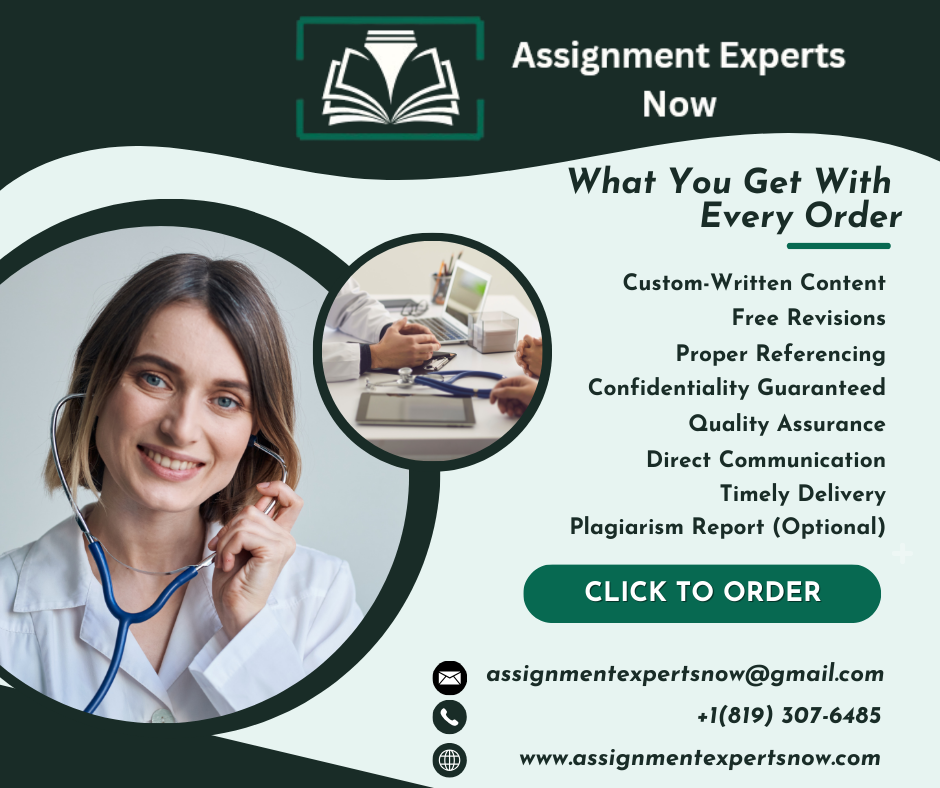WhatsApp: +1(819) 307-6485

Lifelong Learning Reflection
Lifelong Learning Reflection
Welcome OGL 554: Training and Development Crew to our Module 5 Discussion!
As you dive into the content for this week and consider the discussion prompts, please reflect on your experiences with trainings, as well as the materials. Each Module’s Discussion Board will provide an opportunity to engage more deeply with something that interests you from the text and learning materials, listen, engage with the perspectives of your peers on these topics and share aspects of the project development process.
Throughout, please engage with a spirit of generosity, curiosity, collegiality and generative critique. We are here to help each other learn, grow and strengthen our insights, evaluative capacities and skills. This is a cooperative process. Generative critiques between peers can prompt us to ask questions about our work and the contributions of fellow colleagues regarding how a specific training could be improved or whether another avenue of address could be engaged to make a substantive difference in the effectiveness of a training. Thank you all for your collegial engagement!
Check tips on how to do your homework-help-services/
Step One: After engaging with the learning materials for this week, please respond to each of the following prompts with an Initial Post.
1- Life Long Learning and Career Development. Please share what both of these concepts, life long learning and career development, mean to you and how you plan on integrating them into your career trajectory. Why is it important to develop a life long learning philosophy and approach? How has lifelong learning or how will lifelong learning be impactful in your career development? Please rely on the materials in your text AND your own experiences to craft your original post . Requirements: scope at least 200 words and must include at least one specific reference, cited and referenced using APA formatting.
2-Ask a Better Question – In the podcast, Leading Learning, McGowan discusses the cultural practices of asking children, “What do you want to be when you grow up”” and adults “what do you do?” She suggests that these habits are integral to our identifying ourselves through our jobs, which can make the need to adjust to new roles difficult. She proposes that we begin to shift this by asking better questions, such as, “ask people what their purpose is, passion is, what their skills are, what they think they’re good at, and how that can be applied in a number of ways. If we can tap into that passion and purpose, that’s what’s going to keep the lifelong learning candle lit.” This is one shift needed to cultivate our agile learning mindset.
For this post, please write a bio that does not mention any of your current, past or future roles, but instead conveys your purpose, passion, skills, what you are good at, and how the synergy of these things can be applied in any number of ways. Scope determined by you.
Examples Below
1- Life Long Learning and Career Development:
I am deeply passionate about continuous learning and growth. Lifelong learning is more than a professional strategy—it’s a mindset rooted in curiosity and growth. It’s about staying open to new ideas, tools, and experiences at any career stage. Career development, meanwhile, is the intentional growth of skills, roles, and contributions over time. The two go hand in hand: lifelong learning drives career development, while career development gives purpose to lifelong learning.
Having a personal philosophy around lifelong learning is essential in today’s fast-changing, tech-driven environment. As Noe (2019) highlighted, adult learners thrive when learning is self-directed and tied to real work. This reflects how I’ve built my own learning habits through hands-on practice, feedback, and reflection.
One example of this approach is the BigQuery training I designed. I didn’t treat it as a one-time session. Instead, I included learners’ needs/feedback, sandbox practices, and post-training support—mirroring how I prefer to learn. My career has evolved significantly, and I credit much of that growth to embracing continuous learning through on-the-job experimentation, formal education, and collaboration.
Moving forward, I aim to stay current in data platforms, leadership strategies, and learning technologies while mentoring others and creating environments that encourage self-discovery, experimentation, and reflection.
References:
· Cobb, J. (2025, February 22). The Future Is Learning with Heather McGowan. Leading Learning. https://www.leadinglearning.com/episode-130-future-of-learning-and-work-heather-mcgowan/Links to an external site.
· Noe, R. A. (2020). Employee training and development (8th ed.). McGraw-Hill.
2-Ask a Better Question:
I deeply believe in the power of purposeful learning, human connection, and conscious growth. I am passionate about helping people and organizations grow through knowledge, transformation, and mindful leadership. I thrive on turning complex ideas into simple, actionable strategies and love seeing those ideas empower others.
My core strengths include empathy, strategic thinking, and resilience. I create structured environments where creativity and collaboration flourish. I excel in designing learning experiences, guiding change, and fostering spaces where others feel seen, heard, and supported.
I’m skilled at spotting patterns and possibilities in data, people, or systems. I enjoy building bridges across teams, disciplines, and perspectives, aligning them toward shared goals.
Whether guiding someone through change, designing a learning program, or helping a team align around a shared vision, I bring clarity and purpose. When people connect to their values and purpose, extraordinary things happen for individuals and organizations alike.
Life Long Learning and Career Development
To me, lifelong learning is a continuous, intentional commitment to developing skills, knowledge, and adaptability throughout one’s life. Career development is the ongoing process of managing and advancing one’s professional journey, aligned with personal growth and changing opportunities. Integrating lifelong learning into my career trajectory means embracing curiosity and staying agile amid evolving industries and technologies, rather than relying solely on initial education or fixed roles. Noe (2020) highlights that employee development is vital not only for individual growth but also for organizational adaptability in fast-changing environments.
Developing a lifelong learning philosophy is crucial because the rapid pace of change in today’s world demands that professionals constantly update their skills and perspectives. This approach ensures resilience and relevance, enabling me to respond proactively to new challenges and seize emerging opportunities. In my own experience, ongoing training and self-directed learning have helped me stay current and confident in my role, while opening doors to new responsibilities and projects.
Ultimately, lifelong learning is not just about acquiring knowledge but cultivating a mindset that values growth and reinvention as essential to sustained career success and fulfillment.
Reference:
Noe, R. A. (2020). Employee development and career management. In Employee training and development (8th ed., pp. 341-373). McGraw-Hill Education.
Ask a Better Question – Bio
I am driven by a deep purpose to empower others to reach their fullest potential by fostering environments where curiosity and creativity thrive. My passion lies in continuous discovery and meaningful connection, whether through learning new ideas or collaborating with diverse minds. I excel at listening deeply, synthesizing complex information, and translating insights into actionable solutions that inspire growth. This synergy allows me to adapt fluidly to new contexts and contribute value in many ways, be it mentoring, problem-solving, or leading change, always with a focus on nurturing human potential and impact.
1: Lifelong Learning and Career Development
To me, lifelong learning means a continuous, intentional pursuit of personal and professional growth. It isn’t just about staying current but also about staying curious. Career development, in contrast, involves strategically shaping that growth to align with evolving goals, environments, and strengths. Together, these concepts create a framework for resilience, adaptability, and meaning throughout one’s career.
My experience in a classified technical environment like RCTQS has made it clear that relying solely on technical qualifications is limiting. The field changes. Expectations change. Learners change. So, I’ve committed to approaching my work with the mindset of a learner first, leader second. This is reflected in my project, where I aim to develop training that encourages instructors to evolve beyond rigid content delivery and embrace adaptive scenario-based methods. To do that, I’ve had to model lifelong learning myself through curriculum design, feedback incorporation, and technology integration.
Adopting a philosophy of lifelong learning is critical because careers today rarely follow a straight line, they evolve with our interests, values, and opportunities. Noe (2020) points out that career development should be self-directed and value-driven, not ladder-focused. That resonates with me. I’m less concerned about promotions and more concerned with impact. By continuously learning, I stay engaged and open to roles I haven’t even imagined yet.
Reference:
Noe, R. A. (2020). Employee training and development (8th ed.). McGraw-Hill Education.
2: Ask a Better Question
I am someone who thrives in environments that challenge the status quo and call for creative problem-solving. My purpose is to cultivate growth whether that means guiding learners through unfamiliar material, helping teams navigate change, or refining systems that no longer serve their goals. I have a passion for bridging gaps between people and information, between policy and practice, between intention and impact.
I’m naturally analytical and detail-driven, but I find fulfillment in human connection. I ask tough questions, not to criticize, but to uncover what’s possible. I enjoy turning complex content into clear learning experiences and seeing others succeed because they’ve gained confidence or clarity. I am especially good at identifying inefficiencies, creating structure from ambiguity, and building learning environments where curiosity is encouraged and respected.
This combination of purpose, passion, and skill can apply across many spaces: in mentoring, program development, leadership coaching, or systems improvement. What drives me isn’t the role I fill but the difference I get to make. That’s the thread that ties all of my work together and keeps my learning candle lit.
-
What do lifelong learning and career development mean to you?,
-
How will you integrate lifelong learning into your career path?,
-
Why is it important to adopt a lifelong learning mindset?,
-
How has or will lifelong learning impact your career development?,
-
How can you describe yourself without referring to job titles or roles,
Reference:
Cobb, J. (2025, February 22). The future is learning with Heather McGowan. Leading Learning. https://www.leadinglearning.com/episode-130-future-of-learning-and-work-heather-mcgowan/#volume
Resources
Readings
Read the following:
· Chapter 9 in Noe “Employee Development and Career Management”
· A list of career advice websites from a well regarded source.Links to an external site.
· 10 Critical Shifts in the Market for Lifelong LearningLinks to an external site.
Podcast (with show notes)
Listen to the following, as well as check out the show notes:
· Leading Learning PodcasLinks to an external site. t: The Future Is Learning with Heather McGowanLinks to an external site. (28 minutes)
Videos
The first TED Talk is about 12 years old but the lessons presented are relevant to our thinking about life long learning. The second TED Talk illuminates the importance of doing meaningful work. Both reinforce the importance of how life long learning is impactful in career development (and life).

